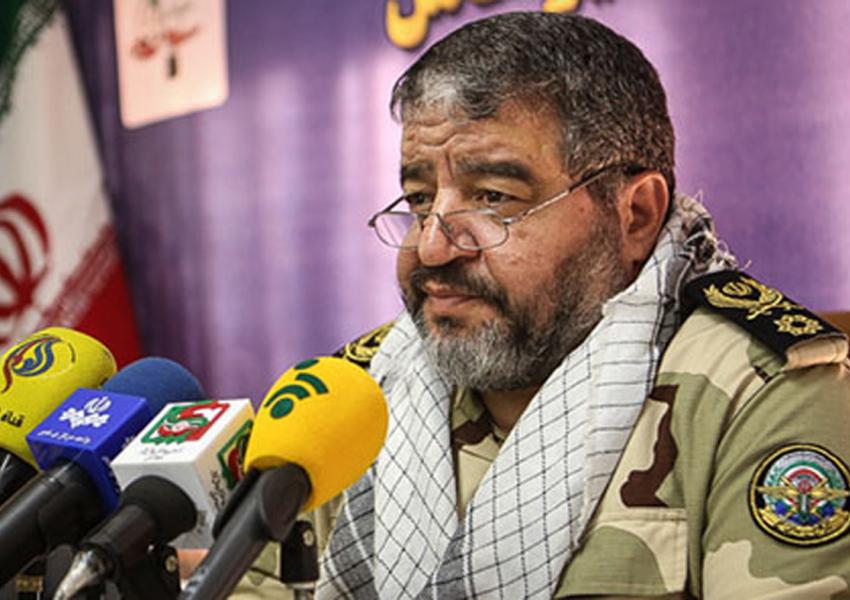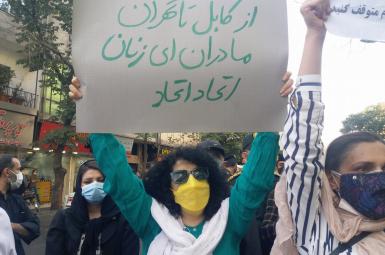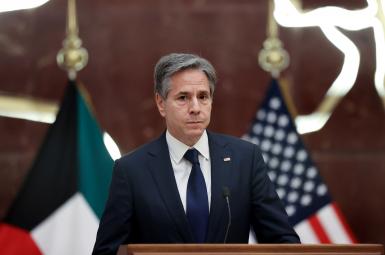
Jalali: ‘Military And Non-Military’ Means Needed To Manage Iranians
Brigadier-General Gholamreza Jalali, Chief of Iran’s Civil Defense Organization, has said both military and non-military means are important in “management of the people” given a pattern of “popular threats.” Jalali told a press conference on Monday October 26 that “threats [to the regime]” had become “more people-oriented.”
“Every enemy scenario using the population and their inter-actions, has turned into a new component in the enemy’s calculations,” he said.
Officials in the Trump administration, including sacked National Security Advisor John Bolton, have not shied away from referring to “regime change” in Iran, especially after widespread protests in 2017, 2018 and 2019.
In the press conference, with the Commander of the Joint Chiefs of Staff and the Interior Minister also present, Jalali issued a clear warning of the authorities’ readiness to use force to prevent demonstrations or disturbances. “We need to pursue a way to defend society in this country,” Jalali stressed. “We need military or non-military approaches to manage the people…Managing the population in these conditions is a necessity.”
Jalali, who is a senior officer in the Revolutionary Guards (IRGC), highlighted social media, which has become popular in Iran, especially in expressing dissatisfaction with the political system, and in spreading news and videos showing any government shortcomings.
The Civil Defense Organization plays a central role in state censorship of the internet and social media platforms. The Telegram app, Facebook and You Tube are all blocked in Iran.
Jalali’s comments come less than a month before the first anniversary of the protests of November 2019, the largest and bloodiest in recent times. Military force was widely used against protestors, leading to deaths of hundreds. With economic conditions deteriorating in the past three years due to harsh United States sanctions, the Jalali reflects a wider fear of protests breaking out again.
Echoing Jalali’s warning over the media, Brigadier General Kiumars Heydari, commander of the ground forces of the Iranian army (Artesh, distinct from the IRGC), on Monday said that one the biggest threats to Iran came from “the enemy’s falsifications.”
In a video conference with commanders around the country, apparently referring to reporting of Iran internationally, Heydari said that “the enemy has hugely profited from this component.” The aim of misrepresenting problems in Iran was “to create a diversion for us,” and to induce mistakes, as reported by Khabar Online website. Heydari said the internet and virtual space represented both an opportunity and a threat.








